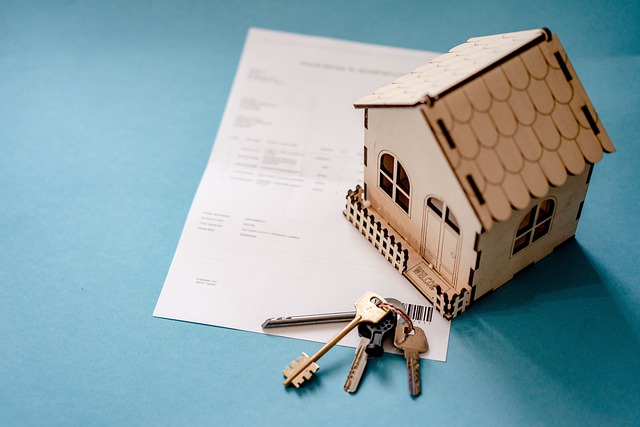In Singapore, Executive Condos (ECs) are popular for their affordability and quality. As of 2021, strict HDB resale rules protect buyers and sellers. These include a 5-year Minimum Occupation Period (MOP), residency, financial, and documentation requirements for both original purchasers and developers. The resale process involves registered Real Estate Agents, thorough documentation, cool-down periods, tax considerations like Capital Gains Tax (CGT) and Common Service Charge (CSC), and avoiding common pitfalls like inaccurate asking prices or inadequate property inspections. These measures ensure a fair, transparent, and stable EC market for Singapore Citizens and Permanent Residents.
Looking to sell your Executive Condo in Singapore? Navigating the resale rules can be complex. This comprehensive guide breaks down everything you need to know in 2021. From understanding eligibility criteria and the step-by-step resale process, to restrictions, taxes, and common pitfalls, we’ve got you covered. Maximize your investment and sell with confidence by familiarizing yourself with these crucial rules and regulations specific to Executive Condos in Singapore.
- Understanding Executive Condo Resale Rules in Singapore
- Eligibility Criteria for Homeowners
- The Resale Process and Required Documentation
- Restrictions and Cool-Down Periods on Resales
- Tax Implications and Fees Involved
- Common Pitfalls to Avoid During Resale
Understanding Executive Condo Resale Rules in Singapore

In Singapore, Executive Condos (ECs) are a popular choice for home buyers due to their affordable prices and high quality. However, understanding the resale rules is crucial before diving into the market. As of 2021, the rules are designed to ensure fair trading and protect both buyers and sellers. One key regulation is the minimum occupation period (MOP), which requires owners to live in the property for at least five years before reselling it. This policy aims to discourage speculative investments and promote long-term housing stability.
Additionally, developers must offer a resale right to original purchasers, allowing them to sell their ECs after occupying it for a specified period. The process involves submitting an application to the relevant authorities, along with necessary documents. These rules, implemented by the Housing & Development Board (HDB), ensure transparency and prevent unscrupulous practices in the resale market of Executive Condos in Singapore.
Eligibility Criteria for Homeowners

In Singapore, Executive Condos (ECs) are a popular choice for first-time homeowners due to their affordability and strategic locations. To resell an EC effectively in 2021, understanding the eligibility criteria is paramount. Homeowners must meet specific requirements set by the Housing & Development Board (HDB). One key factor is residency; applicants should have lived in the EC for a minimum of 5 years continuously before placing it on the market. This residency period ensures that only long-term owners with a genuine desire to relocate can resell their units, maintaining the stability and community of these housing developments.
Additionally, there are financial eligibility criteria, including income caps and payment capabilities. Homeowners must demonstrate the ability to repay any outstanding HDB loans and meet the required down payment for the resale transaction. These measures ensure that prospective buyers are financially capable of taking over the property, contributing to a smooth and secure resale process for both parties involved.
The Resale Process and Required Documentation

When it comes to selling an Executive Condo in Singapore as of 2021, the process is designed to ensure transparency and fairness for all parties involved. The resale journey begins with engaging a registered Real Estate Agent who will help navigate the market and find potential buyers. After accepting an offer, owners must prepare the necessary documentation for the transaction. This includes proof of identity, ownership records, and financial documents such as bank statements.
The buyer’s agent will also require details about the property, like survey plans and a Certificate of Title, to verify the land and building information. Additionally, in line with Singapore’s rules, owners must disclose any outstanding loans or encumbrances on the property. This transparent sharing of information ensures a smooth resale process and helps buyers make informed decisions when purchasing an Executive Condo in 2021.
Restrictions and Cool-Down Periods on Resales

In Singapore, especially in the executive condo market as of 2021, resales are subject to specific rules and restrictions designed to maintain fair housing practices. One key aspect is the implementation of cool-down periods. After purchasing an executive condo, owners are typically required to wait a certain number of months before they can resell it. This period varies but often ranges from 6 to 12 months, depending on the specific policies set by the Housing & Development Board (HDB). The cool-down period ensures that new buyers have ample time to plan and adjust to their purchase while preventing frequent transactions that could distort the market.
Additionally, there are restrictions on who can buy executive condos through resale. For instance, the buyer must be a Singapore Citizen or Permanent Resident, and they cannot be related to the original purchaser within certain degrees of kinship. These rules aim to protect the affordability and accessibility of executive condos for eligible individuals while promoting stable property ownership and preventing speculative investments.
Tax Implications and Fees Involved

When it comes to tax implications for Executive Condo resales in Singapore as of 2021, there are several factors to consider. Capital gains tax (CGT) is applicable on any profit made from the resale of your property. This is calculated based on the difference between the original purchase price and the sale price. For Executive Condos, the CGT rate is generally lower compared to private properties. It’s important to keep records of all expenses related to the property, as these can be deducted from your taxable income.
In addition to CGT, there are other fees involved in the resale process. These include various government charges and agent commissions. The Common Service Charge (CSC) transfer fee is a significant one, which is paid when transferring ownership. Additionally, real estate agents typically charge a commission based on a percentage of the sale price. Understanding these tax implications and fees can help you plan your finances effectively during the resale of an Executive Condo in Singapore as of 2021.
Common Pitfalls to Avoid During Resale

When reselling an Executive Condo in Singapore as of 2021, there are several common pitfalls that homeowners should steer clear of to ensure a smooth and profitable transaction. One major pitfall is failing to conduct a thorough inspection of the property before listing it for sale. This can result in unforeseen issues arising during the buyer’s survey, which may delay the resale process or even lead to lower sales prices.
Another common mistake is setting an inaccurate asking price. Homeowners should research the current market trends and comparable properties to determine a competitive yet realistic asking price. Overpricing can demotivate potential buyers, while underpricing might not reflect the condo’s true value, limiting the resale potential in the long run.
The resale of an Executive Condo in Singapore, as governed by the rules outlined in this guide, offers a streamlined path for homeowners looking to monetize their property investments. By understanding eligibility criteria, navigating the required documentation, and being aware of restrictions and tax implications, savvy sellers can ensure a smooth transaction. Avoiding common pitfalls will further enhance the process, making 2021 an opportune time to buy and sell in Singapore’s vibrant executive condo market.
